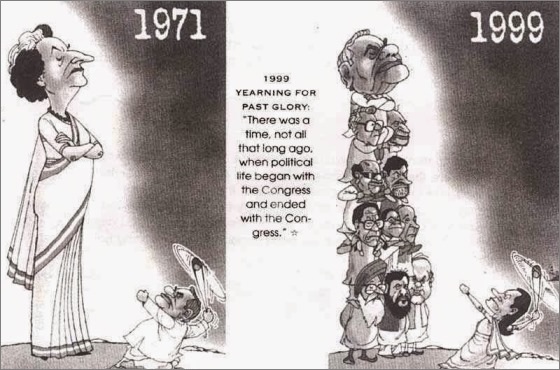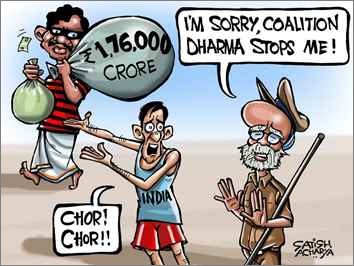Contemporary Political Developments
by Devender
0 1708
After the independence during the first initial years from 1947 to 1967, the congress party emerged victorious at both center and state level with huge numbers.
Contemporary Political Developments
- Coalition Government:
- People in India were unhappy about the corruption and the lavish lifestyle of congress party members
- People started believing in the anti-congress wave during the 1967 elections where opposition parties came together against congress
- The elections of 1967 started the dual era of coalition governments that lived short and politics of defection
- These coalition governments were formed in every state except Tamil Nadu
- Even congress formed a coalition government in some states
- The defection phenomenon was first initiated in Haryana
- During the phase of 1967 to 1970, nearly 800 assembly members crossed the floor.
- These elections also changed the balance of power within the Congress Party
- The struggle for power within the coalition government led to conflicts, confrontation, and mudslinging at each other
- After this collapse, India again had a coalition government under the leadership of Charan Singh but that too failed
- People were not happy with the coalition government so they again gave Congress a chance and congress again formed government at the center
- It also brought the era of a multi-party system
- The 90s also witnessed the rise of powerful parties and movements that represented the Dalit and backward castes
- This new multi-party system meant that no single party had a majority in any Lok sabha elections held after 1989 as long as BJP got the majority in 2014
- Coalition Government Merits:
- Whenever two or more parties formed a government together, they would work on more diverse interests
- It also helped regional parties to get national recognition as they formed a coalition government with national parties
- The coalition also forces parties to work out of their radical approach and orthodox ideology
- It is also believed that a new political coalition would also not the mistakes made by the previous parties
- Whenever two different parties came together to form a government, they have a higher chance of succeeding as they concentrate on solutions and wider voter support
- It gave fewer chances of arbitrary use of article 356 to dismiss the opposition party in power at the state level due to interdependence on state parties
- Coalition Government Demerits:
- The coalition will never criticize their partner whatever the condition because if they pulled support they will also become null
- The Regional parties give more importance to their own regional, geographical, and economic interest overriding national interests
- The coalition between regional parties and national parties often affects the relations of the center and the states as the regional party would only focus on their areas while the central government had to put equal focus on every state
- A by-product of coalition government is the growth of factionalism on the basis of region and caste
- It also damages the very fabric of communal harmony
The emergence of strong regional parties, the politicization of various social groups & their struggle for a share in power brought a political transition in India. It also made coalition government inevitable at the federal level.
After the demise of Nehru, & Shastri, Congress lost its mandate & motivation as a party of social & institutional change. This happened during the 4th general elections of Lok Sabha and state assemblies.
1977 Elections – First Non-Congress Government
For about two years from 1977 to 1979, Morarji Desai was the head of the four-party Janata government. It was not a coalition as these 4 parties merged together and fought under a single manifesto and on a shared symbol. However, due to aspiration of power and position, the Janata government collapsed in 1979. Another reason was that Akali & other regional groups withdrew their support.
The era of Constant Coalition Government
Congress had a decade of stable government but after that coalition politics again return in the election of 1989, congress party lost but no party got the majority. This defeat brought the end of Congress supremacy over the Indian Party System.

It represented the aspirations of people from all regions and also checked authoritarianism and concentration of power that was held by only one party congress during the 1960s and 70s.
It created insecurities in every member and any slight difference in ideas can cause damage to the whole union. Even if one party decides to withdraw its support, the whole coalition can become irreverent so, they have to take care of every single party and for that, they have to ignore their partner's wrongdoings too.


Share:







Comments
Waiting for your comments